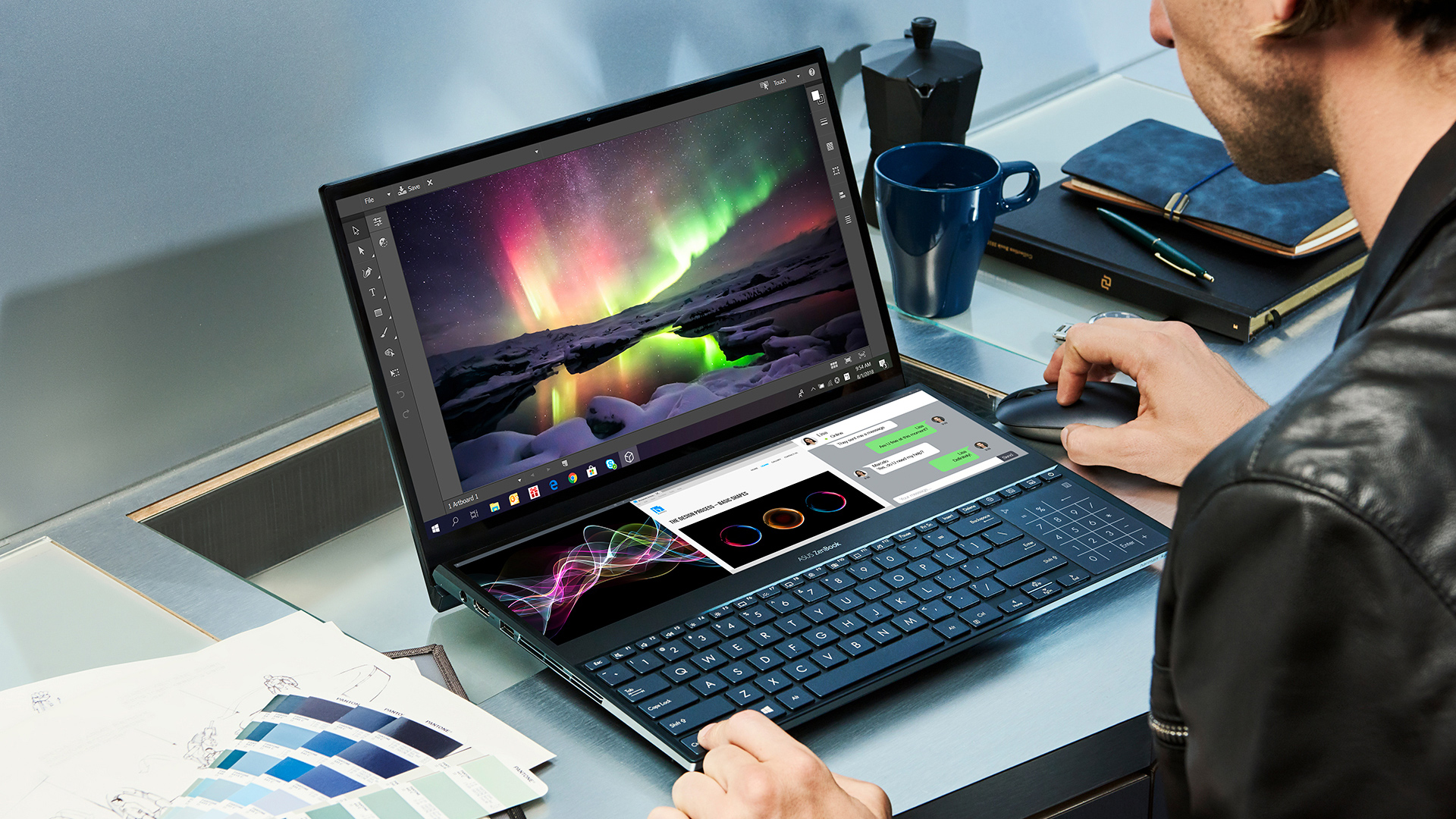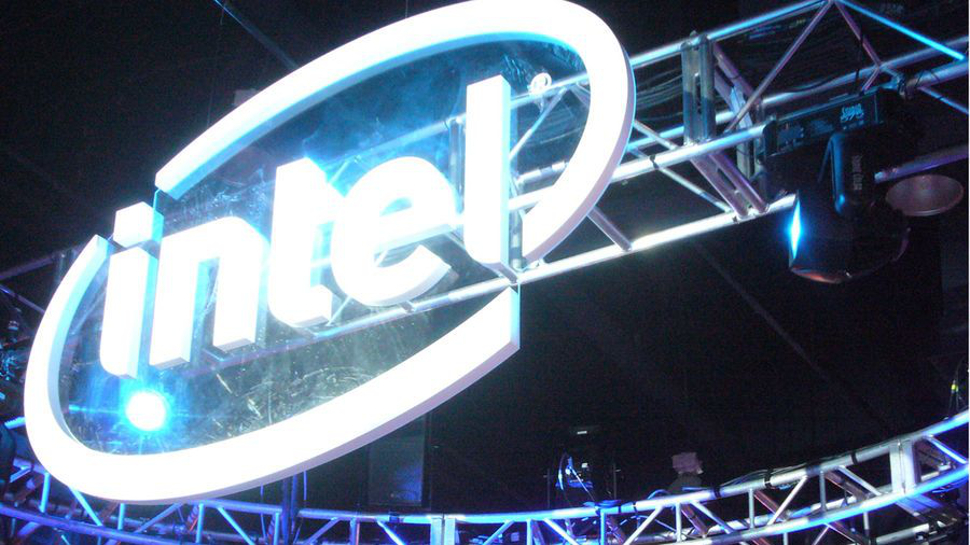Computex 2019 has made me excited for the future of laptops
Laptops are looking bright

Sign up for breaking news, reviews, opinion, top tech deals, and more.
You are now subscribed
Your newsletter sign-up was successful
Laptops have been around for 40 years, and in that time – let’s be honest – not much has really changed. Sure, the hardware has got faster and more powerful, and the bodies thinner and lighter – but the laptops of today are still pretty similar to those of decades past.
Clamshell designs, a built-in screen and webcam on the top half, a keyboard and trackpad on the bottom. It opens and closes, opens and closes. How very… well…boring.
In fact, most laptop makers have gotten so good at what they do, that their yearly updates sometimes feel like they are simply tinkering around the edges. Perhaps they’ll shave a few millimeters off the bezels around the screen, or move the webcam from the top to the bottom of the display (and then back again when everyone hates how it gives their Skype contacts intimate views up their nostrils).
But, apart from a few tweaks and a bump in spec, there hasn't much to get excited about for a long while. However, at Computex 2019, I saw a number of devices that have made me fall back in love with laptops.

Thinking outside the box
Perhaps the most exciting laptops we’ve seen at Computex 2019 have been devices that radically depart from that tried and tested form factor that laptops have been using for decades.
For example, the Asus ZenBook Pro Duo is a dual-screen laptop with a built-in second display which doesn’t feel like a gimmick – it could potentially make laptops even easier to use – especially for gaming and multitasking. Apple has dabbled with a second screen with the Touch Bar, but has never really gone far enough in our view.
The ZenBook Pro Duo won’t be the only dual-screen laptop, either, with Intel coming up with a new form factor concept, code-named “Honeycomb Glacier,” which all feature second screens – amongst other innovations.
Sign up for breaking news, reviews, opinion, top tech deals, and more.
HP has also shown that it can do interesting things with the standard laptop form factor by making a laptop that’s (partially) made out of wood. Perfect for the lumberjack –or hipster – in your life.

Evolving laptops
"Its these sort of innovations that could reignite the laptop market and make laptops feel like modern – and essential – devices once more."
One of the biggest challenges to laptops is that our computing behaviors have changed. What we would once use laptops or PCs for, such as browsing the internet, creating documents and even playing games, we now use smartphones or tablets for.
While our habits have evolved, laptops hadn’t, which meant that these devices seemed positively archaic to some people, hence the continued decline in laptop sales. People had moved on.
But, at Computex 2019, we saw laptops that had taken the best bits of smartphones and tablets, and has resulted in new devices that can keep up with modern user’s demands.
So, we’ve got Intel’s Project Athena, which aims to create laptops that can wake up instantly – just like a smartphone does – allowing you to use it straight away.
Intel also shared its vision for ‘ambient’ PCs, code-named “Mohawk River”, that will remain on when closed, and will intelligently know when its owner is nearby (and what sort of tasks said owner will want to perform on the laptop) by using a frankly astounding array of sensors. While the idea of an intelligent laptop that knows more about you than you do yourself is a bit freaky, it’s also very cool as well.
Meanwhile, Qualcomm has continued to strive to make a laptop that combines the best of smartphone and tablet features and technology, and with its Project Limitless collaboration with Lenovo, it showed off the first ever 5G laptop at Computex 2019 that might actually achieve those lofty goals.
Powered by Qualcomm’s Snapdragon 8cx platform, Project Limitless is a laptop that offers instant-on, always connected internet and – most excitingly of all – multi-day battery life.
Its these sort of innovations that could reignite the laptop market and make laptops feel like modern – and essential – devices once more.

More choice about the hardware that powers them
While Intel did a lot at Computex 2019 to get me excited about laptops again, one of the best things to emerge from the event in Taiwan was how its rivals are now viable alternatives when it comes to the hardware that powers our laptops.
For too long, Intel was the only choice when it came to powering laptops – and that near monopoly meant the company had a huge influence over how laptops should look and act – which is probably why many laptops felt so similar and uninspiring for so long.
Now, we have an ascendant AMD offering its hardware to a growing number of laptops – such as the Acer Nitro 5 and Swift 3 notebooks – alongside Qualcomm’s Snapdragon-powered notebooks.
More choice for the consumer is always a good thing, and it means we’ll be getting laptops that aren’t beholden to Intel’s vision.
This increased competition also means Intel needs to keep innovating to stay relevant – which is probably why the company was so keen to show off its vision of the future of laptops at Computex 2019.
After Computex 2019, I feel excited about the future of laptops once more. That’s something I didn’t think I’d have ever felt again. Let’s hope Computex 2020 brings a similar renaissance for desktop PCs.
- Check out all of TechRadar's Computex 2019 coverage. We're live in Taipei to bring you all the breaking computing news and launches, plus hands-on reviews of everything from fresh laptops and desktops to powerful new components and wild overclocking demonstrations.

Matt is TechRadar's Managing Editor for Core Tech, looking after computing and mobile technology. Having written for a number of publications such as PC Plus, PC Format, T3 and Linux Format, there's no aspect of technology that Matt isn't passionate about, especially computing and PC gaming. He’s personally reviewed and used most of the laptops in our best laptops guide - and since joining TechRadar in 2014, he's reviewed over 250 laptops and computing accessories personally.